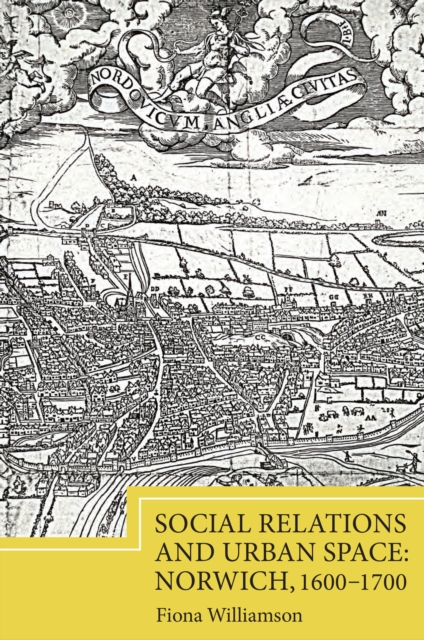
Social Relations and Urban Space: Norwich, 1600-1700 PDF
by Fiona Williamson
Part of the Studies in Early Modern Cultural, Political and Social History series
Description
This book offers an insight into the social relationships and topographies that fashioned both city life and landscape and serves as a useful counterpoise in a field that has largely focused on London.
This is a book about seventeenth-century Norwich and its inhabitants. At its core are the interconnected themes of social topographies and the relationships between urban inhabitants and their environment. Cityscapes were, and are, shaped and given meaning during the practice of people's lived experiences. In return, those same urban places lend human interactions depth and quality. Social Relations and Urban Space uncovers manifold possible landscapes, including those belonging to the rich and to the poor, to men, to women, to 'strangers and foreigners', to political actors of both formal and informal means. Norwich's inhabitants witnessed the tumultuous seventeenth centuryat first hand, and their experiences were written into the landscape and immortalised in its exemplary surviving records. This book offers an insight into the social relationships and topographies that fashioned both city life and landscape and serves as a useful counterpoise in a field that has largely focused on London.
FIONA WILLIAMSON is currently Senior Lecturer in History at the National University of Malaysia.
Information
-
Download - Immediately Available
- Format:PDF
- Pages:246 pages
- Publisher:Boydell & Brewer Ltd
- Publication Date:16/10/2014
- Category:
- ISBN:9781782043959
Other Formats
- Hardback from £75.00
Information
-
Download - Immediately Available
- Format:PDF
- Pages:246 pages
- Publisher:Boydell & Brewer Ltd
- Publication Date:16/10/2014
- Category:
- ISBN:9781782043959






